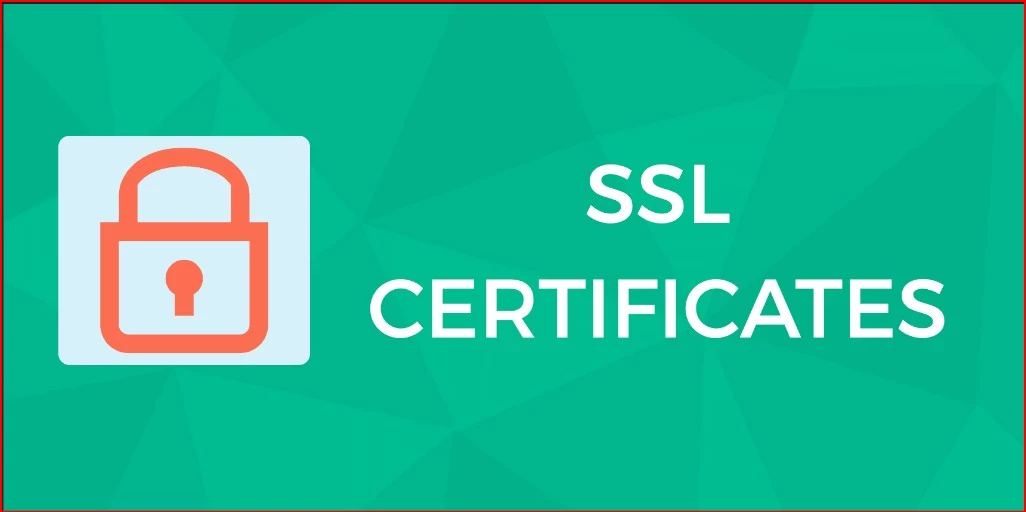
It can be hard to sift through the wide range of providers offering SSL certificates such as DigiCert, SectigoSSL, and RapidSSL to pick the ideal certificate for your business. There are three main types of SSL certificates, namely DV (Domain Validated), OV (Organisation Validated) and EV (Extended Validation), all of which are provided by each of the manufacturers. Not only this but each certificate also has its own typical and shared characteristics.
If you were wondering about the answer to this same question you are in the right place. In this blog, we will dig deeper into the topic "Selecting the right SSL certificate for a business website. ".
SSL certificates are a small portion of code (generally found on the main web server of the web page) that establishes a secured link not only between the transiting information and the encryption key but also between the data and the server itself. The certification authorities which are finalized after strict inspection and audit will provide the corresponding certificates. With a cup of tea, let's know how to implement the HTTPS protocol and to encrypt connection between the web servers and browser clients, the website will need to have an SSL certificate. Installing an SSL certificate on a web page will help establish the trust level by showing trust indicators such as an extra "S" and the lock icon in the URL.
Hence, this kind of practice raises the level of trust that people have in websites. Let's know about websites in detail.
To verify if a website has an SSL certificate, click on the padlock icon at the address bar.
With this subdomain and the public key.
The certificate's expiration date
The issuing date of this certification and the organization that made the certification.
A digital mark signed by the Certification Authority.
What recipient, entity, or machine SSL has been granted for.
The fact that there are numerous benefits of the SSL certificate is not debatable. Some of the most important benefits of SSL certificate include:
Through the SSL encryption that runs with an SSL certificate, websites and users are shielded against security risks, data breaches, identity theft, and other malignant actions.
Based on GDPR and HIPAA, as well as PCI DSS standards that require strict procedures for processing personal data, the SSL certificate is critical for compliance.
Using private server identities or reserved IP addresses in public recognized SSL certificates become non-compliant for CAs starting from November 2015. In sum, that is because the company applies these domains internally, and they are not distinctive, giving a CA no chance to confirm that such a business really owns them. We will walk you through the process of choosing an SSL certificate here, following the CASC's recommendations, and provide some more background to help you make your choice.
Before getting a globally trusted SSL certificate (which is employed mainly for public websites), you need to purchase the domain name first. More on this later. This is from the reason CAs (Certification centers) must do domain control verification before issuing the certificates. The necessity to register a domain name for a public website means that you have already gone through the process and you can move to step 2 of this instruction or if you are trying to protect a public website.
Thus, what steps can you take to protect communications that occur amongst internal servers that utilize internal server names? As publicly trusted SSL certificates are not available, you can either use self-signed certificates or create an internal CA (such as a Microsoft CA) as well as issue certificates from there. Know more about finding the best undervalued domains for profit in detail. Although these are definitely feasible choices, managing your own CA may be very resource-intensive and demands a high level of internal expertise. Additionally, several CAs (cough, GlobalSign cough) provide certificates created specifically for this use scenario.
While all SSL certificates provide session security as well as encrypt any data sent over the website, they vary in terms of the amount of identifying information they contain and how they show up in browsers. From greatest to lowest, there are three primary degrees of SSL certificate trust:
Extended Validation (EV),
Organization verified (OV)
Domain Validated (DV).
The most important thing to consider when choosing between the levels of trust is, "How much confidence do you desire to portray to your visitors?" You should also take into account how crucial the brand's identity is to your online exposure. Would you prefer to have your brand appear prominently in the address bar of the browser or only in a certificate itself? Or do you not think it's that crucial to link your brand image to your domain? Let's learn more about domain investing tips in detail.
Grab a cup of hot coffee and know how these SSL certificates may be further divided into groups according to the number of subdomains and domains that they are capable of protecting. These groups include single-domain, multi-domain, wildcard, as well as multi-domain SAN SSL certificates.